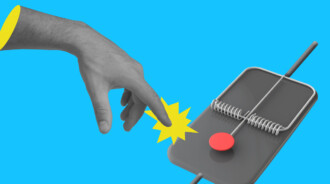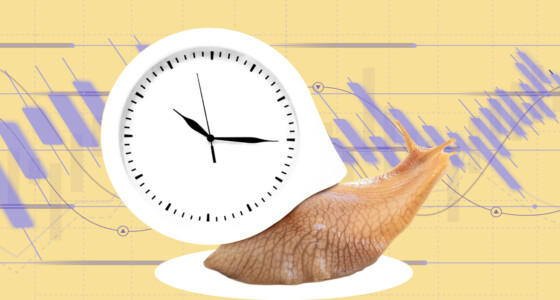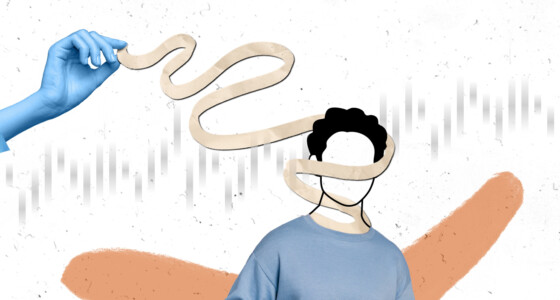

For professional traders, trading is not just about looking for a good strategy to bring much income in little time. To be successful and stand out from the bunch of other traders in the market, you must understand trading psychology and risk management as the essence of trading the market.
There are unique traits exhibited by pro traders, traits common to their class and define their level of success. This guide seeks to bring to you 6 things that make a pro trader and why trading psychology is important.
Key points
- A professional day trader loses as much as an amateur trader. The difference is in their reaction to loss.
- To be successful as a trader, you must learn to exercise patience and hard work.
- Techniques alone cannot make you stand out in the pool of traders; you need to master discipline, mental agility, and analytical thinking
6 unique traits of professional traders
Specific characteristics distinguish successful traders from unsuccessful ones. Let’s look into what these traits are;
1. Discipline
The first trait we will be talking about is “Discipline”. No trader can pass the trading psychology and risk management test without showing strong discipline in their actions. The market presents you with many opportunities to grab hold of (with only a few providing you with good trading chances).
Regardless of the market conditions, there’s the need to exercise discipline in waiting patiently until there’s a signal to act. Once you place a trade, you must learn to wait patiently for strong trading signals before taking an unhesitant move. The same thing applies if you’re not in trade; you must be disciplined to wait for the right trading opportunity.
2. Ability to adapt
You can’t witness two separate trading days with the same experience. If you are successful as a trader, you must learn to adapt. This trait is quite hard to adapt especially by amateurs who only refer to a handbook for implementing strategies without knowing why trading psychology is essential.
Whether there’s less or high market volatility, learn to study your strategy and apply appropriate changes that assure you of success. In addition to what has been said so far, successful traders are always open to changing their approach to different market situations.
3. Mental strength
You can take this as being positively stiff-necked. There’s no doubt that the market will hit you with losing trades, but you have to get back up on your feet and work on another strategy. Staying positive helps build a robust mental defense against losses, even before they happen. It becomes easy to start making impulsive decisions whenever you feel discouraged at one, two, or three losses in a row.

Accept losing trades as a part of the adventure to your way up. What sets successful traders apart from unsuccessful ones is that they focus more on success and work on strategies to withstand any loss.
4. Patience
This can be likened to being disciplined as a trader. Patience requires staying positive as you wait for the best time to make a move. One characterizing trait of unsuccessful traders is their readiness to take blind steps (whether or not it’s in their favor). It could be from fear of missing out on trading opportunities, greed, or having unrealistic expectations.
As one who’s working towards becoming successful as a trader, you must learn the art of patience. Take your time to analyze your strategy before entering a trade and, in turn, wait for the right timing before you exit any trade.
5. Future-centered thinking
Professional traders do not allow themselves to get stuck in the past. While they still use valuable information from the past to make successful decisions in the present, whatever happened in the past remains there. Nothing (past success or loss) should be more important than your next move as a trader. When you master this trait, you will learn to overlook your mistakes and plan forward to better ways to apply specific strategies.
6. Being independent
As you start day trading, you’ll need to get some help from books or watch several videos that talk about trading. Some may go as far as receiving mentorship from professional traders. In the long run, you will determine your rise as you place your trades.
Learning from other traders is a great way to start as a trader. But eventually, you must learn to develop a sense of being independent. This will help you learn from another standpoint and give you insight into the practicality of trading psychology and risk management that you may not get from a mentorship program.

Final words
For beginners and amateur traders, it is most unlikely that all of these traits will suddenly find expression. But with time and deliberate attention, mastery of all six traits will be actualized. This is to point to the fact that professional traders are not born, but consciously develop themselves, until they reach the peak.
Frequently asked questions
- Is it possible to master all 6 traits?
Yes, depending on your level of determination, you can master all 6 traits within the shortest possible time.
- When does patience start becoming detrimental?
Patience cannot be over-utilized. However, you know when it’s time to turn off being patient the moment you notice your loss is having a severe gross effect on your capital.









